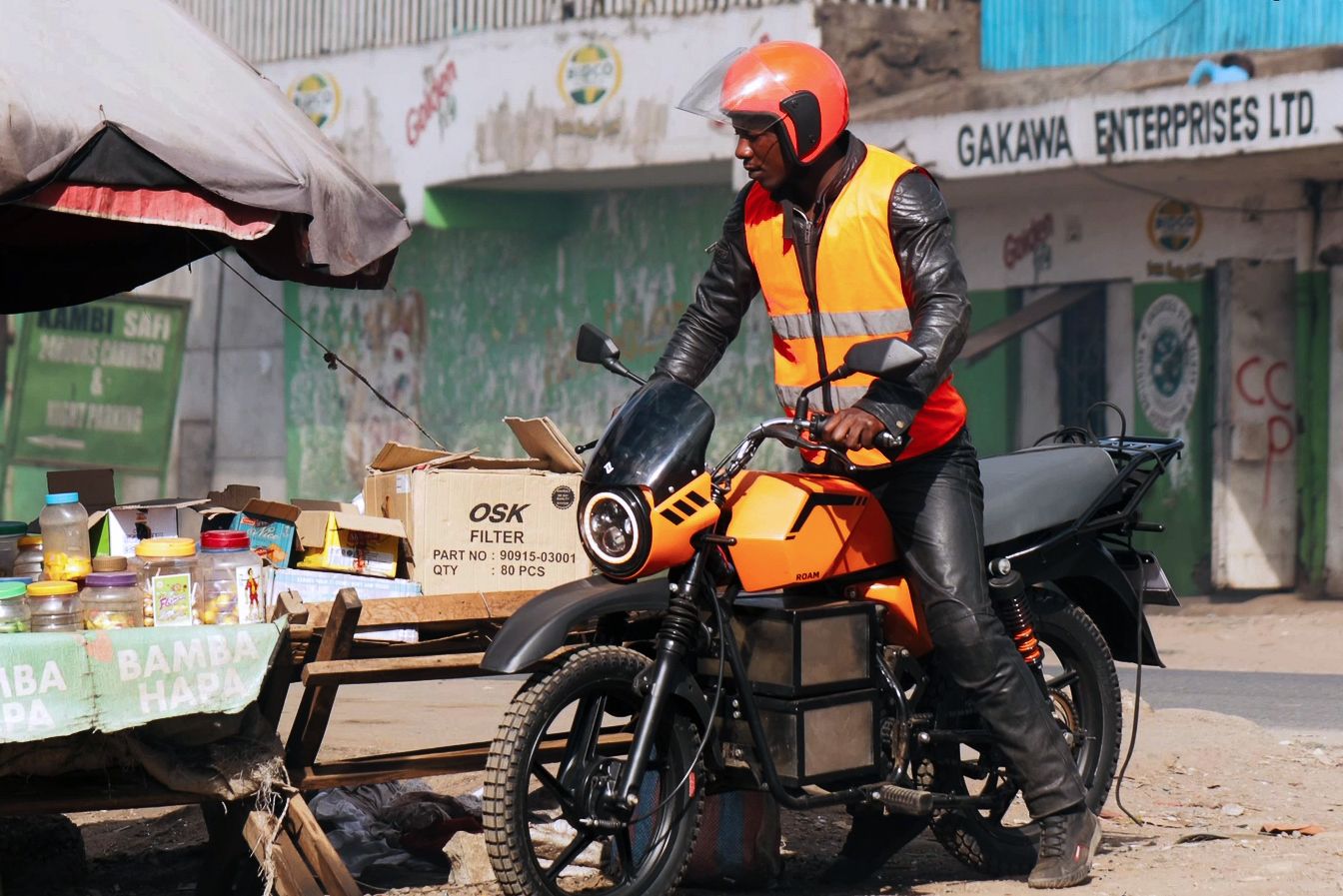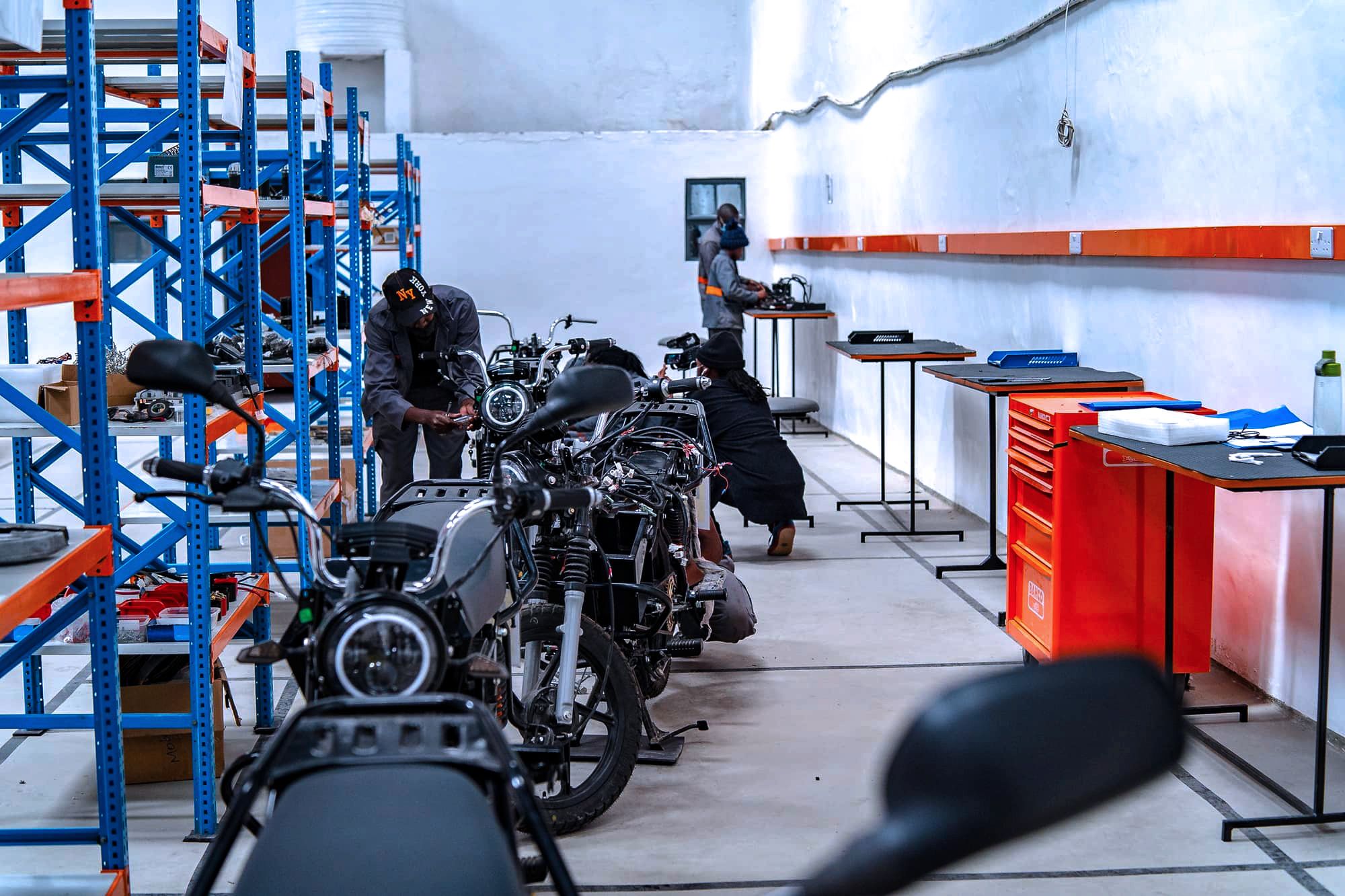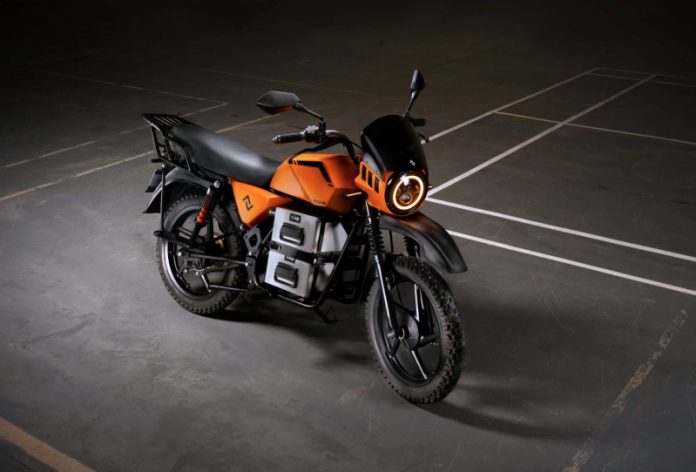By Seth Onyango
From four wheels to two, or even three-the pursuit of cost-effective transportation is accelerating the adoption of electric bikes in Africa as gas prices soar. Analysis shows that e-bikes, with their considerable cost advantages, are spreading much faster than other electric vehicles on the continent, with e-commerce and delivery services driving market penetration. Light, battery-powered models of transportation are becoming very popular in Africa’s big cities, where the number of people who need to get to work every day is growing quickly.
Kenya has become a hotspot of e-bike growth after several start-ups chose to set up shop in the country’s capital. In February 2021, Kenya-based ARC Ride launched an electric motorcycle-based service for Uber Eats deliveries in Nairobi. ARC Ride is now on course to grow its fleet to more than 2,000 electric eBikes and electric three-wheelers (Tuk Tuks) to ply different routes in Nairobi by the end of 2022.
ARC is also building its charging network to facilitate in-city charging of e-bikes on its network. The service also wants to expand into other African markets after its e-mobility services were well received in Kenya.
Meanwhile, another 3,000 Kenyan-designed-and-built electric bikes are expected to hit the streets of Kenya and other African cities following a strategic partnership between global ride-hailing firm Uber and a Swedish-Kenyan firm, Opibus, now known as Roam.

Albin Wilson, Chief Strategy & Marketing Officer at Roam, told bird that with the adoption of electric transportation, Africa can significantly slash local emissions.
“We feel like we shouldn’t get Africa stuck in the old ways of the west. Africa has the possibility now to leapfrog into new technology and start correctly from the beginning, by not weighting historical mistakes that include a lot of fossil fuel vehicles,” he said.
Roam said that it is counting on Uber’s presence in African markets to speed up the widespread use of electric cars on the continent.
“We’re seeing a huge demand for locally-designed electric motorcycles on the African continent, and by working with Uber we’ve now been able to prove the feasibility for large-scale deployment. Next year we’re scaling up our production to meet the market demand, both in Kenya and in the region,” explained Mikael Gånge, Co-Founder and Chief Sales Officer of Roam.
Motorcycles, pedelecs, scooters, and other battery-powered two- or three-wheeled bikes with an electric motor for propulsion are examples of e-bikes. Some can be partially pedalled or fully electrically propelled, depending on their configuration, and are seen as a tool to help reduce the carbon footprints from daily commutes.
Electric motorcycles in Africa have 40% lower per-mile fuel and maintenance costs than their fossil-fuel counterparts.
The United National Environment Program (UNEP), which sees e-bikes as a cheaper and healthier mode of transportation for African cities, is funding e-bike projects in several African countries.
According to Global Fleet (GF), the UN agency projects sales of both electric and traditional two- and three-wheeler motorcycles to jump 50 per cent by 2050. In Kenya alone, UNEP estimates that motorcycles will triple to five million this decade, driven by services like ARC.
UNEP’s Emob calculator shows that a global shift to electric motorcycles could prevent 11 billion tonnes of carbon dioxide emissions, more than double the annual energy-related emissions in the United States of America, from being released into the atmosphere.
Globally, the electric bike market size was valued at US$ 45.75 billion in 2021 and is forecast to reach US$ 109.53 billion by 2030-a growth of some 10 per cent per annum-while Astute Analytica figures show the Middle East and Africa eBike market was valued at USD 822.22 million in 2021 and is projected to reach US$ 1.7 billion by 2029. Lithium-Ion accounts for the largest battery type segment in the respective market because these batteries are smaller in size and long-lasting.
In November 2021, Africa’s e-commerce giant, Jumia, said it had begun replacing “hundreds” of the fuel-based delivery motorbikes used by its riders through a partnership with a Kenyan start-up, eBee Africa.

Jumia said that switching to E-bikes was in line with the company’s efforts to be an environmentally friendly business.
“This pilot with eBee is the beginning of a conscious push across Africa into EVs. We hope we can play a part, as early adopters, in speeding up the penetration of the industry in Africa, “said Jumia Services Country Manager, Ankur Agarwal.
According to Global Fleet, the governments of Kenya, Uganda, Rwanda, Ethiopia, Burundi, Madagascar, and Seychelles are cooperating to spearhead the region’s transition to e-mobility. In East Africa alone, there are more than 20 start-ups and companies that sell and make electric motorcycles and three-wheelers.
“While these vehicle types are not yet as popular in Africa as they are in Asia—where the proximity of and joint ventures with China are fuelling the market—this may soon change,” GE notes.
In Rwanda, startup Ampersand plans to scale up the number of electric motorcycles from its current fleet of 56 drivers on the country’s roads to several thousand and also grow in the Kenyan market by the end of 2022, as it eyes the potential to electrify the around 5 million fuel-powered motorcycles in East Africa.
Another Kenyan startup, Ecobodaa, with a similar business model to Ampersand, began the production of its electric bike brand in November as it ramps up the roll-out of battery swap stations across the country. Ecobodaa is betting on a rent-to-own business model to boost uptake.
While there is plenty of buzz around e-mobility in East African countries, East Africa is hardly the only region to experience a rapid increase in the e-bike market.
Bonafide Research’s South Africa Electric Bicycle Market Overview, 2027, shows the market will expand significantly in the forecast period as the pursuit of healthy lifestyles, fitness trends, and recreational activities drive sales.
In West Africa, Nigeria’s Federal Ministry of Power in April unveiled 10 electric-powered motorcycles manufactured by MAX Nigeria under its Electric Vehicle Opportunities in rural and peri-urban communities in Nigeria. Germany and the EU, which are part of the project, hope significant adoption of the eBikes will follow.

The African market is also attracting investors from outside of Africa. The most recent ones came from Asia.
In July last year, Indian EV maker, One Electric, announced the start of deliveries for its motorcycle brand, Kridn, in Kenya, with plans to expand to four more African countries in 2022.
Global Fleet notes that more companies are also taking notice of Africa’s EV potential, including Mellowcabs, based in Stellenbosch, South Africa, which operates 60 light-duty electric delivery vehicles in Botswana and Namibia, as well as South Africa.
“Japan’s Yamaha Corporation took part in funding for electric motorcycle delivery company MAX.NG. The company is on track to launch 1,000 EVs in Nigeria by the end of 2021,” its analysis shows in part.




